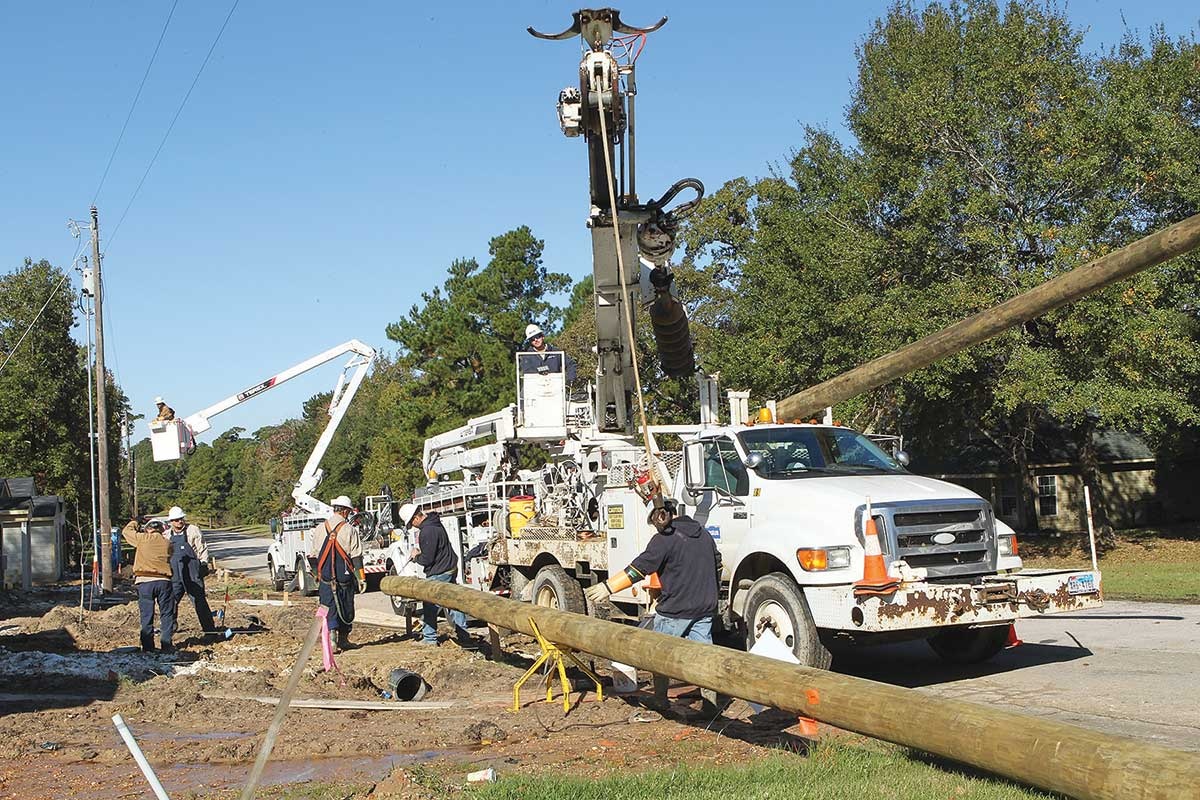For Sam Houston Electric Cooperative’s line technicians, every day presents new and different challenges—even for the most experienced team members. That’s why, from the moment they’re hired to the day they retire, the Co-op’s line technicians undergo continual training.
Sam Houston EC takes many factors into account when hiring line technicians. Attendance at a linework school may be a favorable addition to an applicant’s resume, but the Cooperative values more than formal training. Among our 50 line technicians are former construction, oil field and sawmill workers. Some attended technical schools, such as Lamar Technical Institute in Beaumont, prior to being hired, but many others did not, and the majority of their training happens on the job.
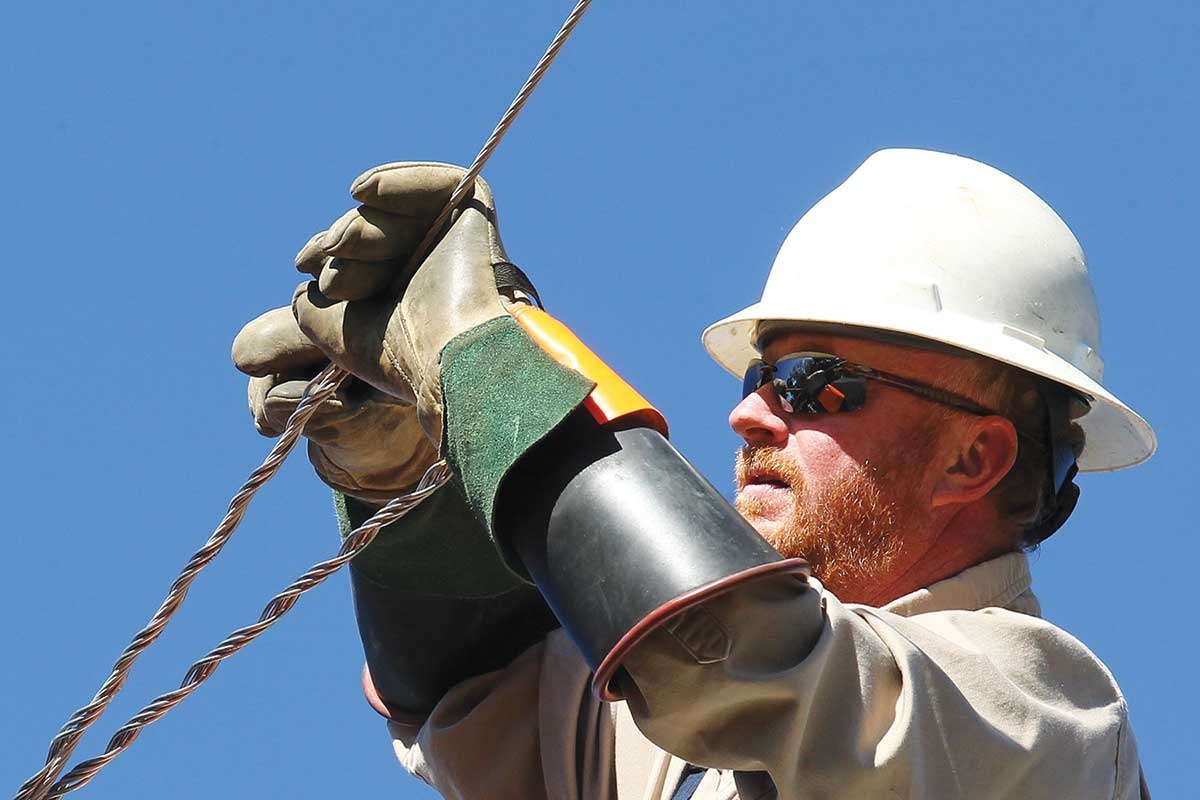
Currently, all newly hired line technicians attend an apprenticeship program administered by Northwest Lineman College in Denton, which takes eight weeks spread across four years to complete.
“It is not always experience as a lineman or that an applicant has gone to lineman school that moves them to the next step,” said Dana Massey, director of administration. “I take into consideration if their job history indicates that an applicant has worked in an outside element, worked with their hands and tools and machinery, and if they have a commercial driver’s license.”
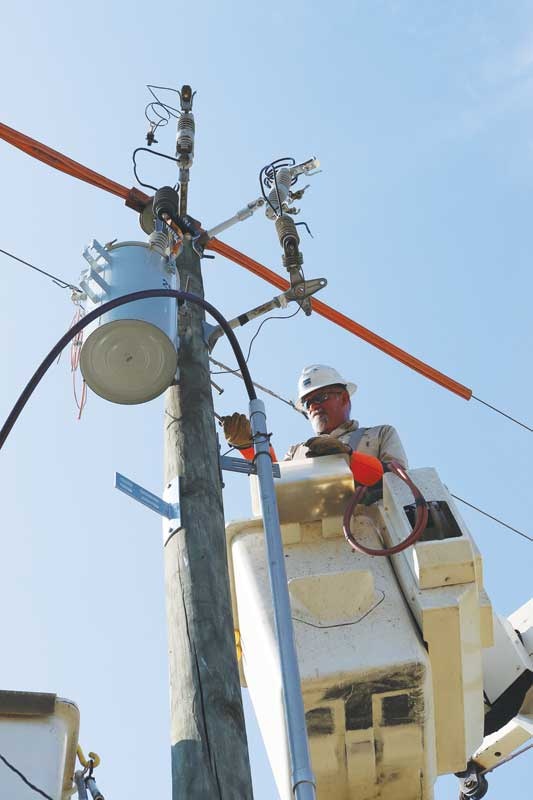
Applicants also take a test before an in-person interview is held at Sam Houston EC.
“The test gives us an overall score to recommend a candidate for interviewing,” Massey said. “It gives us an insight to how the applicants answered questions concerning safety orientation, achievement, mechanical comprehension, responsibility, thoroughness and teamwork.”
Sam Houston EC line technicians attend schools offered by Texas Electric Cooperatives throughout their career. Courses range from basic pole climbing to hot-line courses, but nothing replaces the everyday, on-the-job training on the Co-op’s large distribution system spread across 10 counties.
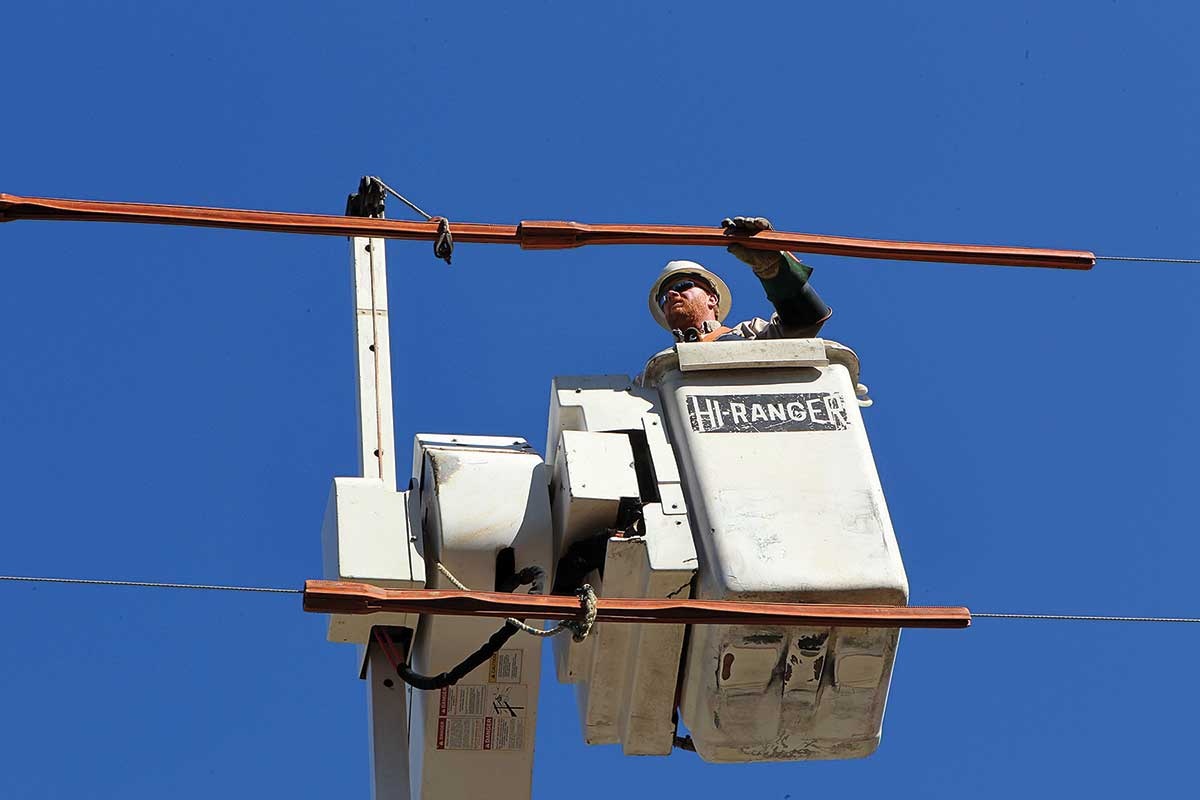
Dalton Hodge has been a line technician with the Co-op for fewer than two years, but he graduated from a linework school before being hired at Sam Houston EC.
“You learn a lot more on the job than you do in school,” Hodge said. “School is good to learn the basics, tools and materials, but every company has its own lingo. You definitely learn more when you get hired on. You learn what they do and how they do it.”
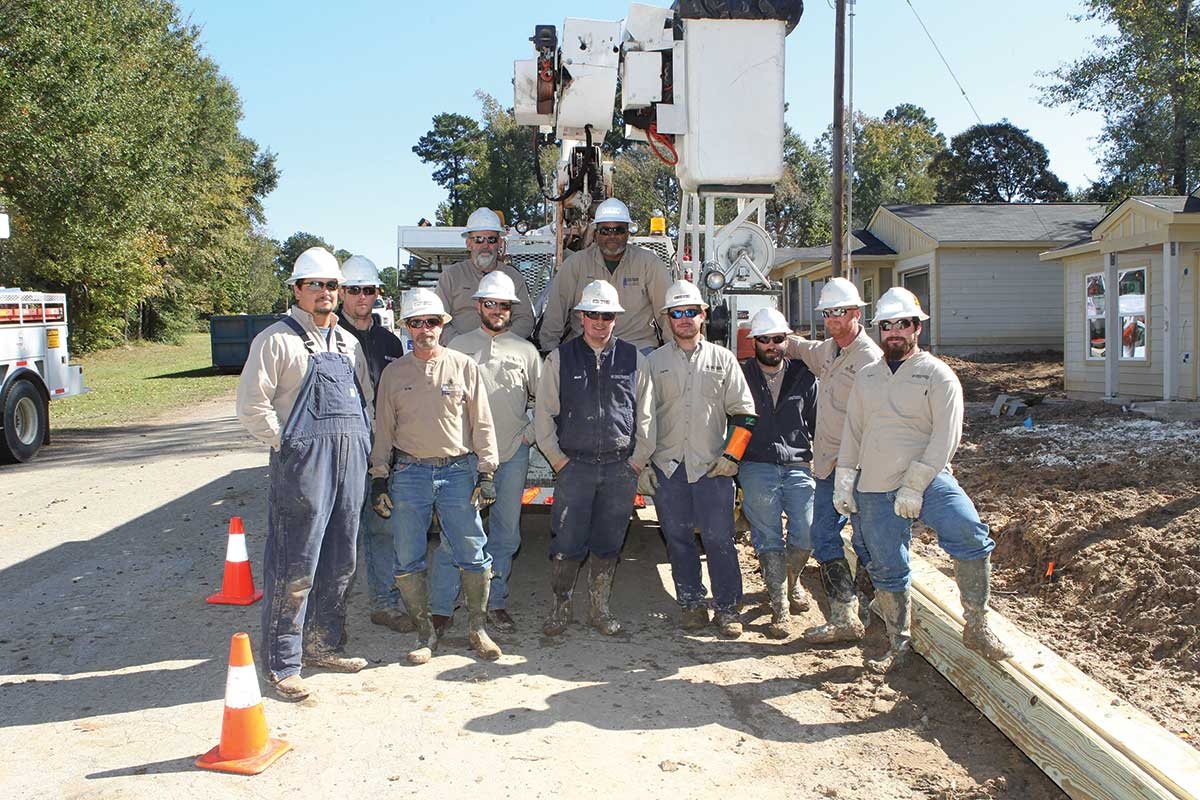
Weeklong schools administered by TEC—the co-op’s state-wide association—and apprenticeship programs are helpful, but new and seasoned line technicians alike learn from their foremen and others on a continual basis.
Terry Lowe, a line technician foreman, was a millwright before being hired by the Co-op more than 20 years ago.
“You can learn a lot of the basics in school, but when it comes down to doing what we do, on-the-job training is the best,” Lowe said. “You are going to learn to do a job the way we want to do it. Just because you know how to hang a transformer, it may not be the way the Co-op wants you to do it.”
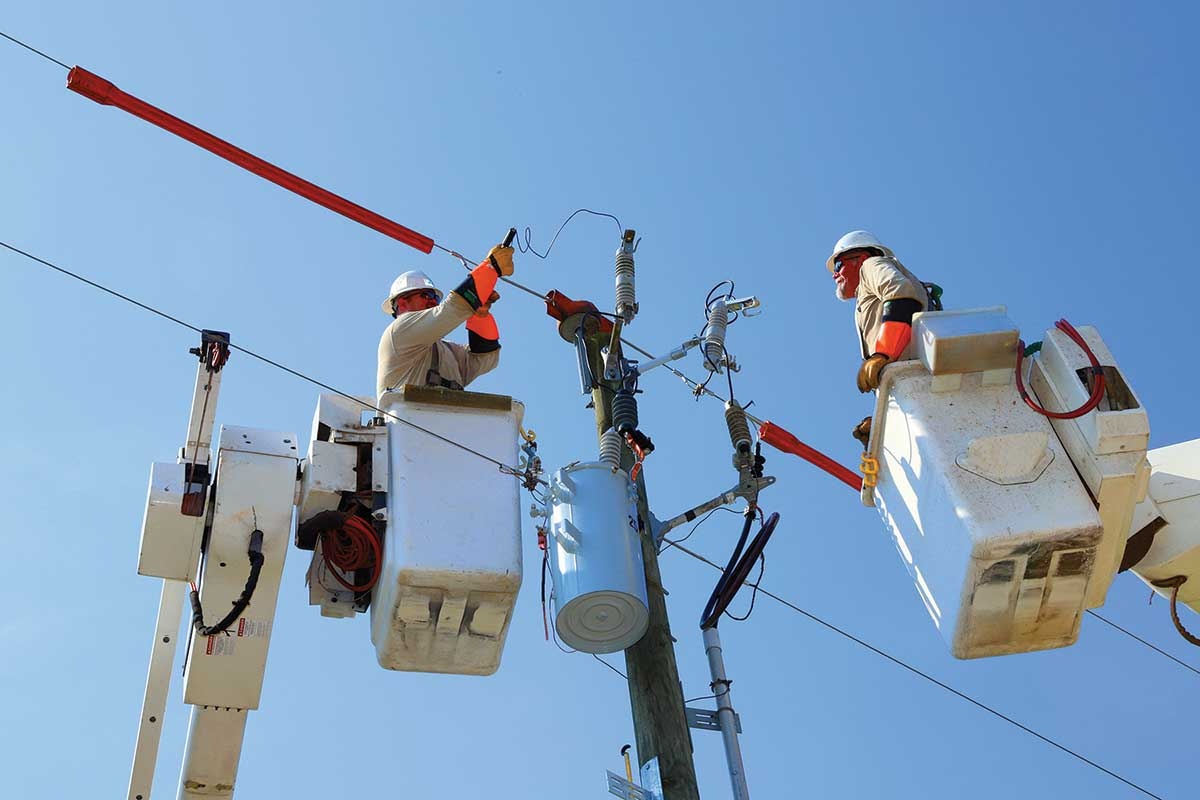
John Williams, a line technician foreman, was hired about the same time as Lowe, and both teach their crews differently from how they learned when they started two decades ago.
“When a younger guy is learning, I want them to ask me questions,” Lowe said. “That way they won’t get hurt. Coming up, there were times when the older line technicians would rib you pretty hard because they had to help you do something. I wasn’t going to be that way.”
Lowe and Williams realize line technicians learn at different rates, and they won’t put anyone in a situation where he or she may not be comfortable, no matter how long the line technician has been at the Co-op.
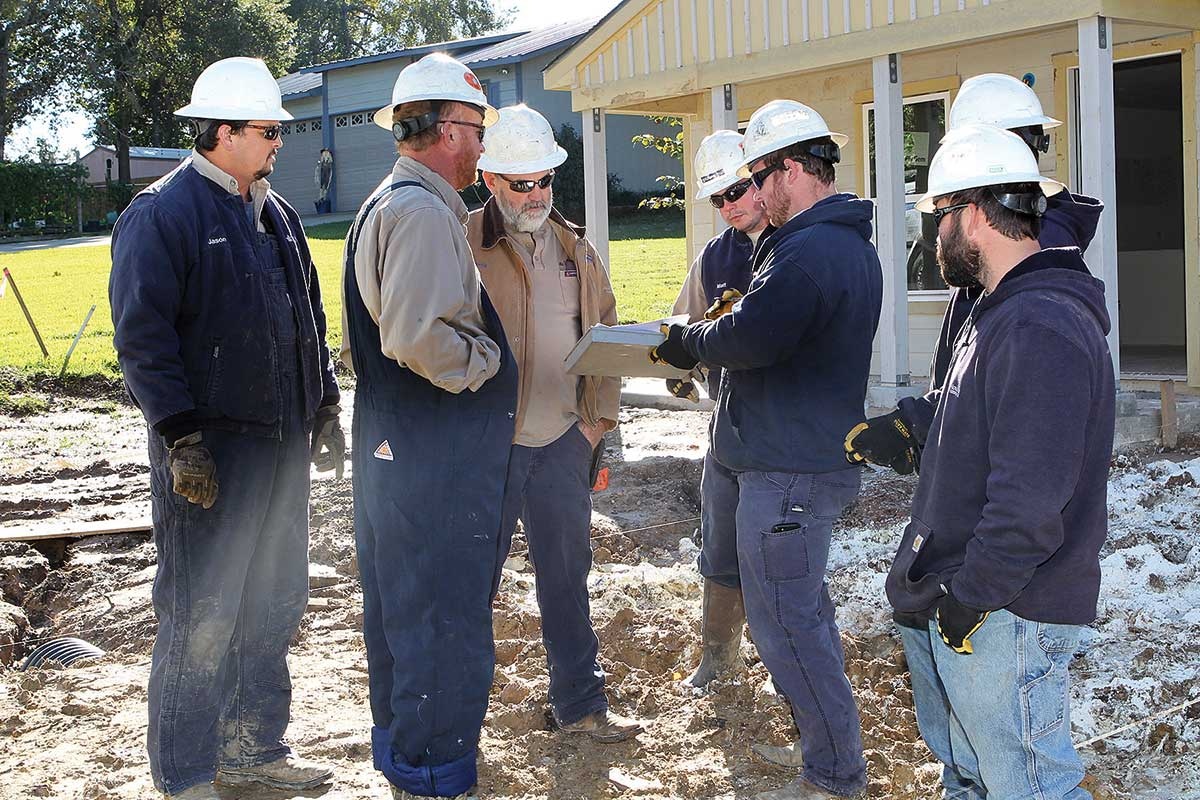
“My first word to them about using rubber gloves is if they can’t do something with them on, then come down, and I will go do it,” Williams said. “We work in a different culture now than when I first started. We work in a safety culture now.
“When I first started, we were not as safety-oriented like we are now. That is the main thing I harp on—work in a safe way. We will still be productive. The longer you do safe things, the easier it is to work in a safe way.”
As line technicians become more comfortable and more skilled, their responsibilities and workloads increase as their foreman sees fit.
“It is a judgment call,” Williams said. “When they start with me and we change poles out, there will be two buckets up in the air. A lot of times, Jason Valderez, a line technician, will be in the other bucket. He won’t touch anything. He will just be there, to be right beside them while they are starting their training. After a few times of that, you can tell if they are ready or not.”
It’s often said that when a new employee comes to work at Sam Houston EC, it will be their last job. Lowe and Williams will train and work with fellow line technicians for years and years. The longevity allows the foremen to watch line technicians mature from new employees to seasoned technicians.
“It makes me feel good to see them progress, especially when you see them do it safely,” Williams said. “They take the extra step to be safe. It is good communication. Some pick it up quick and some don’t. You have to work with them in certain areas, and that is the good thing about on-the-job training.”
